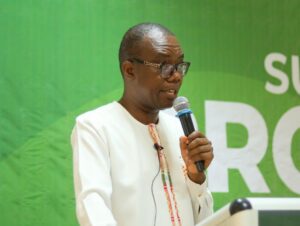Political will needed to enforce procurement policies – GIMPA Professor

Professor Charles Amoatey, Director of Ghana Institute of Management and Public Administration (GIMPA) Training and Consulting, has urged authorities to move beyond rhetoric and implement procurement policies in the country.
“As a country, we have a policy that promotes sustainable public procurement…We have developed procedures, and action plans, but the weakness in our procurement processes has to do with implementation,” he said.
Prof Amoatey made the call in Accra during the opening of a five-day training programme on Sustainable Public Procurement across the African continent.
The programme drew some 50 procurement experts from Ghana, Liberia, Nigeria, Sierra Leone, and the Gambia, among others.
It was organized by GIMPA Training and Consulting in collaboration with the World Bank.
Prof. Amoatey said the country required political will to ensure that procurement decisions considered the social, economic, and environmental pillars of development.
“We aim to equip policymakers, researchers, and procurement practitioners to be able to integrate the concept of sustainable development in the way they practice procurement,” he said.
Prof. Amoatey mentioned a study that found that 20 per cent of a country’s GDP was spent on the procurement of goods, services, and works.
“This is also where we have a lot of challenges, especially on corruption and sometimes not being able to procure things that will meet the needs of the people,” he said.
Prof. Amoatey said the country often made procurements without considering if they came from renewal sources.
“The issue of “galamsey” is an example of practicing development that is not sustainable because it is affecting the lives and livelihoods of the people,” he said.
He said the organizers of the programme were hoping to build a coalition of sustainable procurement practitioners across the continent.
Mr Kofi Awanyo, Practice Manager for Procurement in Africa, West, and Central Regions, World Bank, underscored the critical role of sustainable public procurement in driving innovations.
Source: GNA
